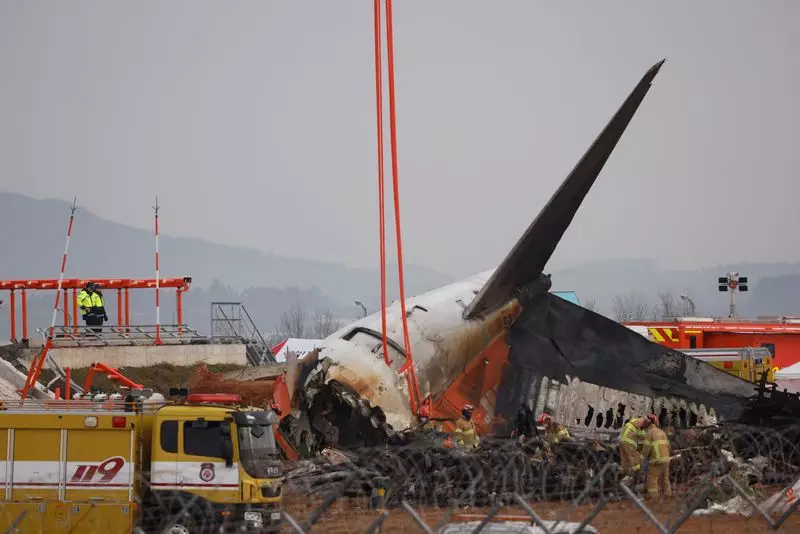On Monday, Jeju Air, South Korea’s leading budget airline, witnessed a dramatic decline in its stock prices following the country’s most catastrophic air disaster. This harrowing incident, which claimed the lives of 179 individuals, marked a grim historical milestone for aviation in South Korea. As investors reacted to the tragedy, Jeju Air’s shares plummeted by as much as 15.7%, closing at an unprecedented low of 6,920 won. The fall wiped out 95.7 billion won (approximately $65.2 million) in market capitalization, casting a dark shadow over the airline’s financial future.
The repercussions of the crash extended beyond Jeju Air, adversely impacting its parent company, AK Holdings, which witnessed its shares drop by 12%, hitting a record low not seen in 16 years. This tragic event raises critical questions regarding the safety protocols of budget airlines, particularly in a nation where air travel is a significant mode of transportation. As South Korea’s third largest carrier by passenger numbers, Jeju Air’s operational integrity comes under scrutiny, amplifying concerns regarding consumer trust. Analysts, such as Yang Seung-yoon from Eugene Investment Securities, emphasize the role of credibility and how fragile it can be for budget airlines compared to their full-service counterparts.
Government Response and Safety Measures
In light of this calamity, South Korea’s acting President, Choi Sang-mok, responded with urgency by mandating a nationwide safety inspection of the airline sector. While the focus will initially be on the recovery efforts related to the crash, this proactive approach underscores the necessity of reinforcing safety measures across the airline industry, especially for budget carriers that often operate under tightened financial margins.
Travel agencies are witnessing immediate repercussions as consumer sentiment shifts dramatically in the wake of the tragedy. Reports indicate a doubling of tour package cancellations, alongside a 50% decrease in new bookings, compelling agencies to halt advertising and promotional campaigns. This behavioral shift may create a short-term decline in travel demand, although experts believe the effects will not linger for an extended period.
Additionally, while some budget airlines like Air Busan enjoyed a brief uptick of more than 15%, others like Jin Air and T’way Air also felt the pressure, albeit with slight decreases. Notably, South Korea’s flagship carriers, Korean Air Lines and Asiana Airlines, also experienced minor dips, reflecting a broader concern regarding public perception of air travel safety.
Looking Forward: A Period of Recovery
The aftermath of this tragedy presents a unique juncture for the South Korean aviation industry. Stakeholders will need to navigate the delicate balance between addressing immediate safety concerns and restoring consumer confidence in air travel. While the Swings in stock values underscore the volatile nature of the aviation sector, the resilience of travel demand in the long term remains to be seen. As the industry rallies together in the face of adversity, its commitment to safety and reliability will be paramount in winning back the trust of an anxious public.

